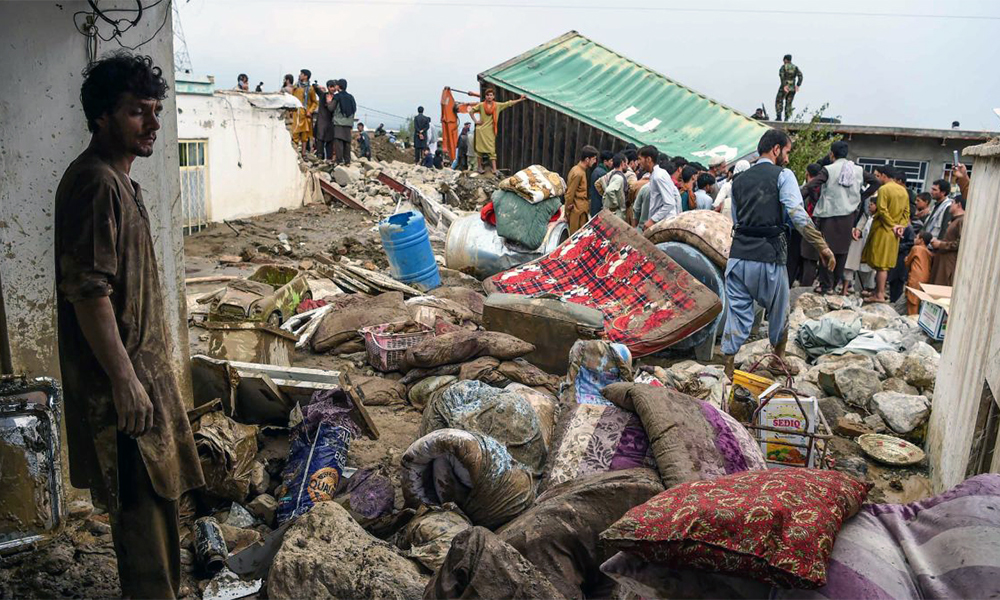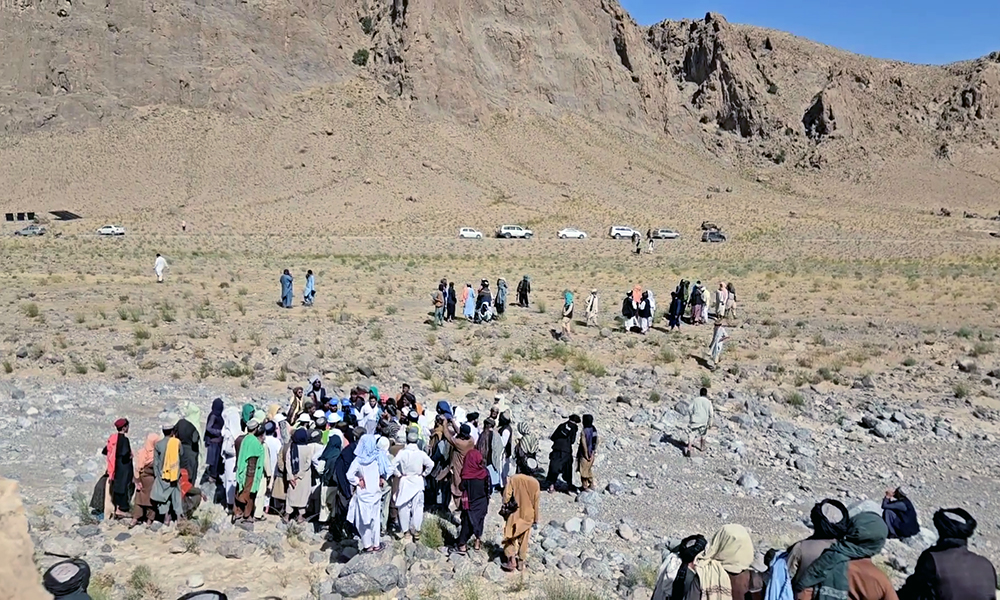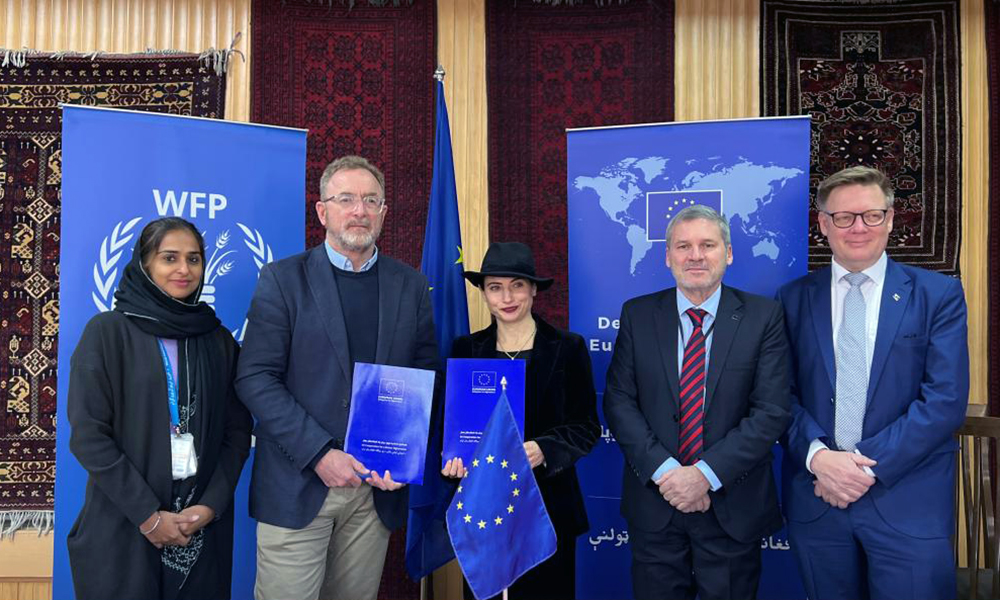Climate Change
Over 30 million in urgent need of help after major floods in Afghanistan and Pakistan

The International Rescue Committee (IRC) has launched an emergency response to devastating floods in Pakistan which have hit almost 33 million people and killed more than 1,000 in the past two months.
Since mid-June, the monsoons have destroyed 3,000 kilometers of road, 130 bridges and 495,000 homes.
Sindh and Balochistan provinces have seen 784% and 500% more rains than average with even more monsoon rains anticipated in the coming weeks.
With more than 4 million acres of crops damaged and almost 800,000 livestock killed, the IRC is anticipating a sharp increase in food insecurity and a severe impact on the economy.
A rapid needs assessment conducted by IRC and Medical Emergency & Resilience Foundation (MERF) in Pakistan found that:
87% of respondents reported that women and girls don’t have safe latrine facilities and 84% don’t have access to necessary hygiene supplies
71% reported their community does not have access to sufficient and clean drinking water
63% reported that pregnant and lactating women were extremely vulnerable
60% of respondents said their community is not safe
30 to 40% of respondents said they do not have access to critical healthcare
The IRC is calling for a quick mobilization of resources to help IRC and other aid organizations respond urgently to reach those most in need.
Shabnam Baloch, Pakistan Country Director at the IRC, said: “Pakistan has been facing increasingly devastating climate-induced drought and flooding.
“Despite producing less than 1% of the world’s carbon footprint, the country is suffering the consequences of the world’s inaction and stays in the top 10 countries facing the consequences. Now, more than 30 million people, including many Afghan refugees, need our urgent help.
“Our needs assessment showed that we are already seeing a major increase in cases of diarrhea, skin infections, malaria and other illnesses. The IRC has reached almost 20,000 people with critical food, supplies and medical support.
“We are urgently requesting donors to step up their support and help us save lives.”
Flooding in Afghanistan has also brought widespread devastation in central and eastern provinces of the country in the midst of an on-going drought and worsening humanitarian crisis.
Over 180 people have been killed and upwards of 3,300 homes have been destroyed.
Many of the areas impacted by this month’s flooding were hit by a devastating earthquake in June that killed over 1000 people.
IRC Afghanistan has deployed emergency response teams to affected provinces and is providing cash support to families who have lost their livelihoods, and water and hygiene kits to flood-affected households.

Climate Change
Kandahar’s Takhtapul district hit hard by ongoing drought
Afghanistan has experienced three consecutive years of drought, including the most devastating drought in 30 years in 2021 and 2022.

Residents of Takhtapul district of Afghanistan’s Kandahar province say they are struggling to survive amid an ongoing drought that has devastated their crops.
This rural community mainly relies on agriculture to survive but climate change has virtually ended any hopes of farming.
Afghanistan has experienced three consecutive years of drought, including the most devastating drought in 30 years in 2021 and 2022.
Climate experts predict that by 2050, 90% of its territory will be affected by drought.
Afghanistan is one of the ten countries most vulnerable to climate change. It's also ranked fourth in overall disaster risk.
Takhtapul residents have spoken out about their plight and said they have sustained extensive losses due to the drought
They said in the past they had made a living off farming, but now due to the severe lack of water, their land has become barren.
They also said this is forcing their youth and younger generation to find work in other provinces or outside the country.
Abdullah, a resident of Takhtapul district of Kandahar, said: "Our youths have gone to Pakistan and other provinces in search of work due to unemployment and drought. There they have wheelbarrows [for day labourer work] or they do other jobs."
On the other hand, local officials say that they are trying to reduce unemployment by launching development projects in this district.
Along with droughts and lack of work for young people, the breakdown of roads, lack of health centers and lack of suitable places for education are among the problems that the residents of this district want to solve.
Climate Change
EU pledges €15 million to WFP to help mitigate climate crisis impact on Afghans

The United Nations World Food Programme (WFP) has welcomed a €15 million (US$15.8 million) contribution from the European Union (EU) for its climate related activities in Afghanistan.
According to a statement issued by the EU on Thursday, this contribution will help local communities prepare for natural disasters and face the devastating effects of climate change, and support farmers for more productive and sustainable agriculture.
So far this year, more than 160,000 people have been affected by flooding in Afghanistan. Floods have destroyed almost 20,000 homes, and thousands of hectares of agricultural land.
“The European Union is committed to assisting the people of Afghanistan in adapting to climate change, which is severely threatening food security and livelihoods notably of rural communities, said the EU Chargée d’Affaires to in Afghanistan, Veronika Boskovic Pohar.
“Climate-related shocks also exacerbate host communities’ capacity to support internally displaced people and returnees from neighboring countries, and they discourage farmers in poppy-cultivating areas from sustainably shifting to licit crops.
“This latest contribution increases the European Union’s steady support to WFP’s resilience programme in Afghanistan to a total EUR 85.1 million since 2022”, she said.
Harald Mannhardt, WFP Deputy Country Director in Afghanistan, said: “This latest funding from the European Union comes at a critical moment as WFP earlier this year was forced to halt projects across the country due to a massive funding shortfall.”
Afghanistan is currently ranked seventh on the Notre Dame Global Adaptation Index of countries most vulnerable and least prepared to adapt to climate change.
Climate Change
Malaysia records six months of rain in just five days
One of the worst hit areas was Kelantan which recorded 1,442mm of rain between November 26 and 30

Six months worth of Malaysia’s average annual rainfall fell within five days across the east coast of the country last week, Prime Minister Datuk Seri Anwar Ibrahim said early Tuesday.
One of the worst hit areas was Kelantan which recorded 1,442mm of rain between November 26 and 30.
Ibrahim said the high rainfall led to flooding that forced a large number of people in Kelantan and Terengganu to be evacuated.
The recorded rainfall at Irrigation and Drainage Department stations in Tanah Merah and Tumpat, exceeded 1,167mm in just five days.
“According to the Malaysian Meteorological Department (MetMalaysia), the reading (in Kelantan) was at 1,442mm, an extraordinarily high level of rainfall. In Terengganu, MetMalaysia’s Besut station recorded 1,761mm of rain during the same period.
“Overall, the (average) rainfall was 1,349mm, far beyond our expectations,” Anwar told the Dewan Rakyat (Parliament) on Tuesday.
He also said the government is preparing for the forecast monsoon surge as announced by MetMalaysia, expected to start after Dec 8.
By Tuesday, some residents in the town of Tumpat were returning to submerged homes and shops as deadly floodwaters eased in some areas.
People who returned to their homes found many had collapsed, with parts of walls, roofs and broken furniture lying scattered in pools of water.
Muhamad Alim, a 56-year-old shopkeeper whose food store was inundated, recalled fast-rising waters in his home and his grandchildren crying as the flood surged on Saturday night.
"Electricity was cut off, and there was no water supply. So, we were stuck, sitting there as if we were in the middle of the sea, surrounded by water," he told Reuters.
"You could hear the sound of water rushing cutting through the silence of the night."
Six people have died in Malaysia and more than 150,000 were evacuated during the height of the floods last week, government data showed.
In Thailand, the death toll is 25, and more than 300,000 households were still affected, the interior ministry said.
The number of people in temporary shelters in Malaysia fell to just under 95,000 on Tuesday morning, though the authorities remain on guard for a second wave of floods this week.
Malaysia's Meteorological Department expects a wind convergence to begin on Tuesday, potentially bringing heavy showers, with a monsoon surge to follow on Dec. 8.
In Thailand, the Meteorological Department warned people in the south of the country to beware of heavy to very heavy rains and possible flash flooding and overflows from Dec. 3-5.
-

 Sport5 days ago
Sport5 days agoZimbabwe’s opening ODI against Afghanistan abandoned
-

 World4 days ago
World4 days agoNorth Korean troops suffer 100 deaths, struggling in drone warfare, South Korea says
-

 Latest News2 days ago
Latest News2 days agoAfghan men must stand with women to support viable future of country: US envoy
-

 Latest News4 days ago
Latest News4 days agoTwo horror accidents on Kabul-Kandahar highway leave 52 dead
-

 Sport3 days ago
Sport3 days agoAfghanistan crush Zimbabwe by 232 runs in second ODI
-

 Regional5 days ago
Regional5 days agoIran’s president to make rare visit to Egypt for D-8 summit
-

 International Sports4 days ago
International Sports4 days agoLanka T10: Kandy Bolts in at 4th spot in playoffs after thrilling day
-

 World5 days ago
World5 days agoNATO takes over coordination of military aid to Kyiv from US, source says























